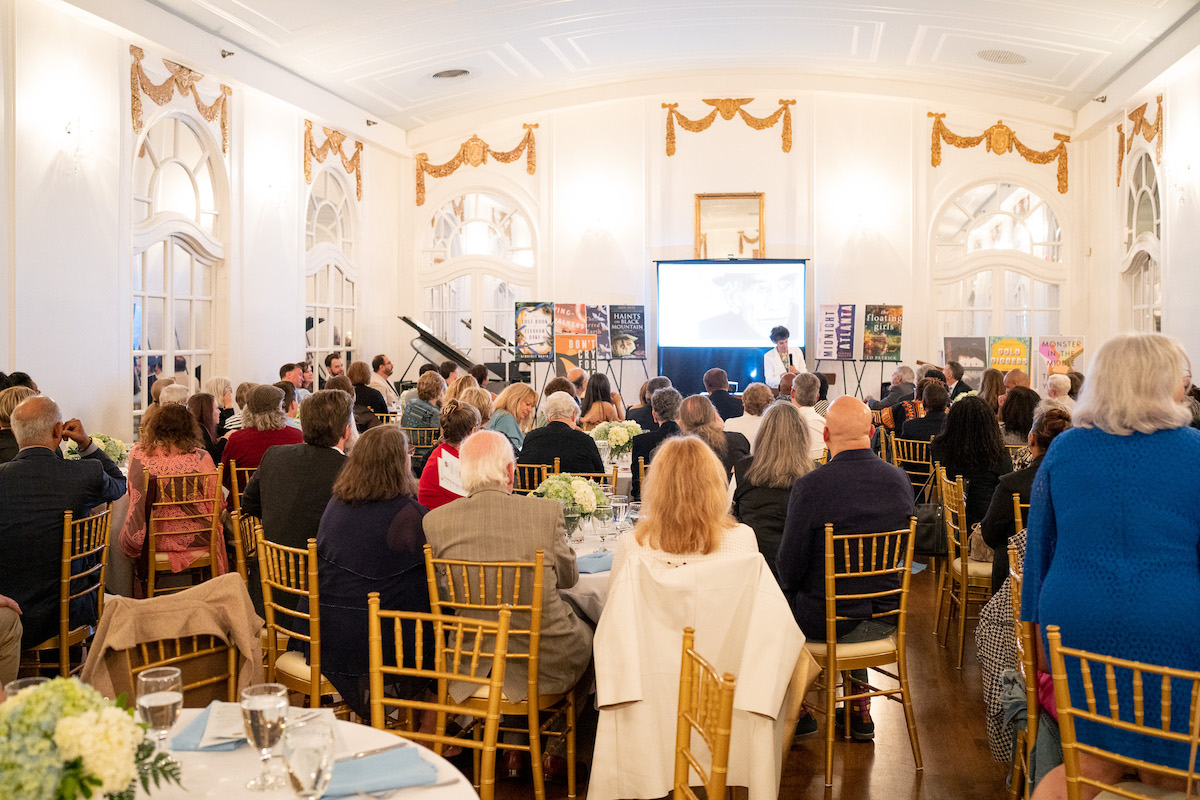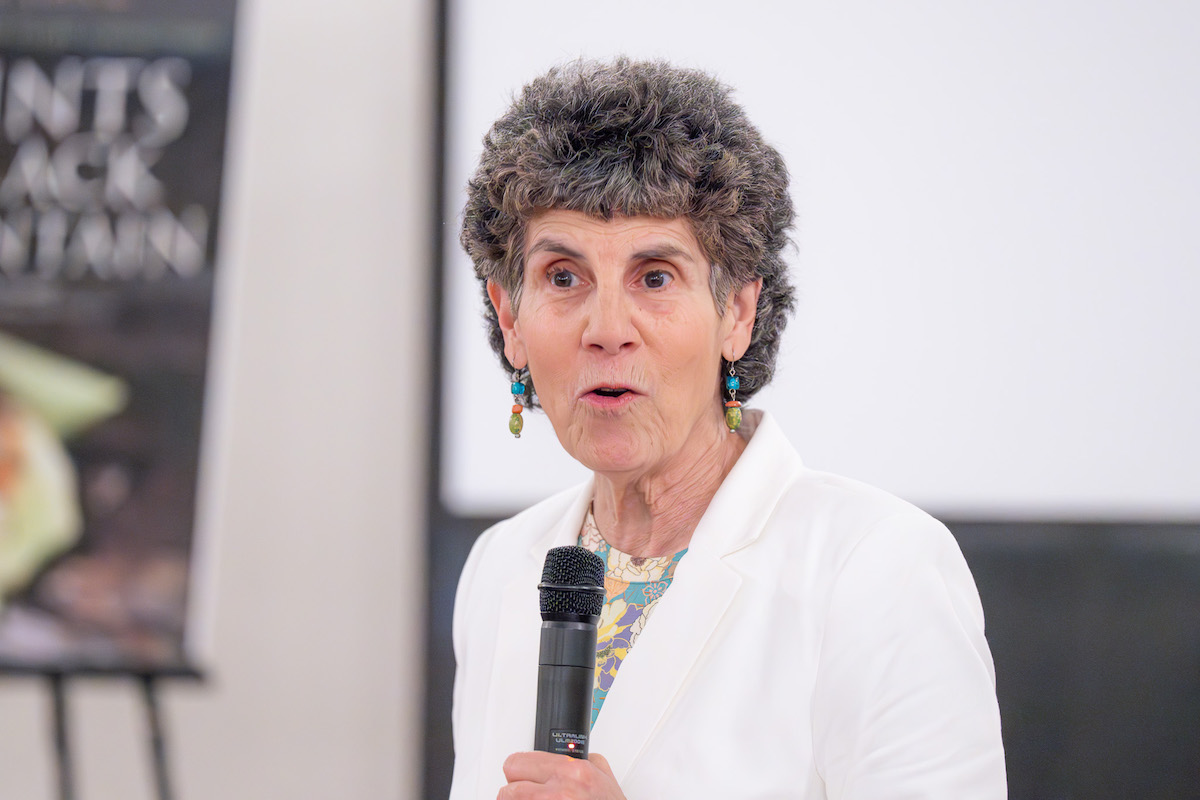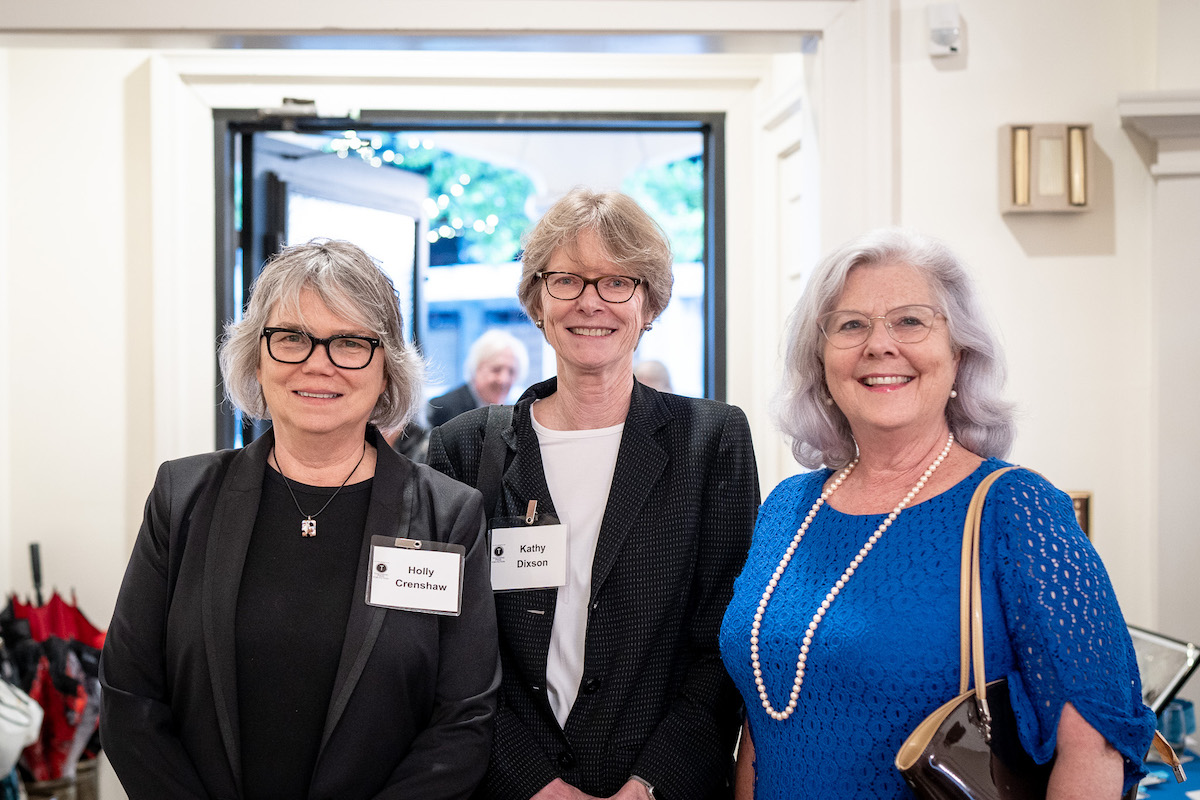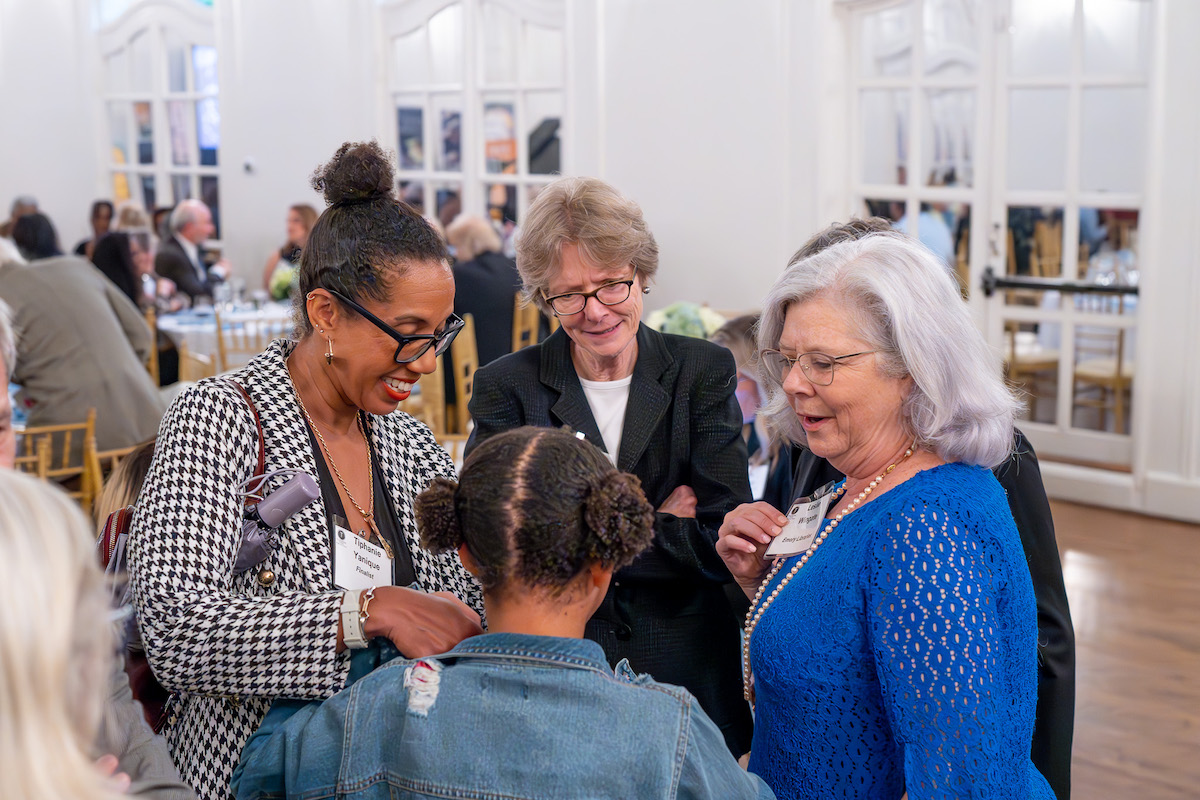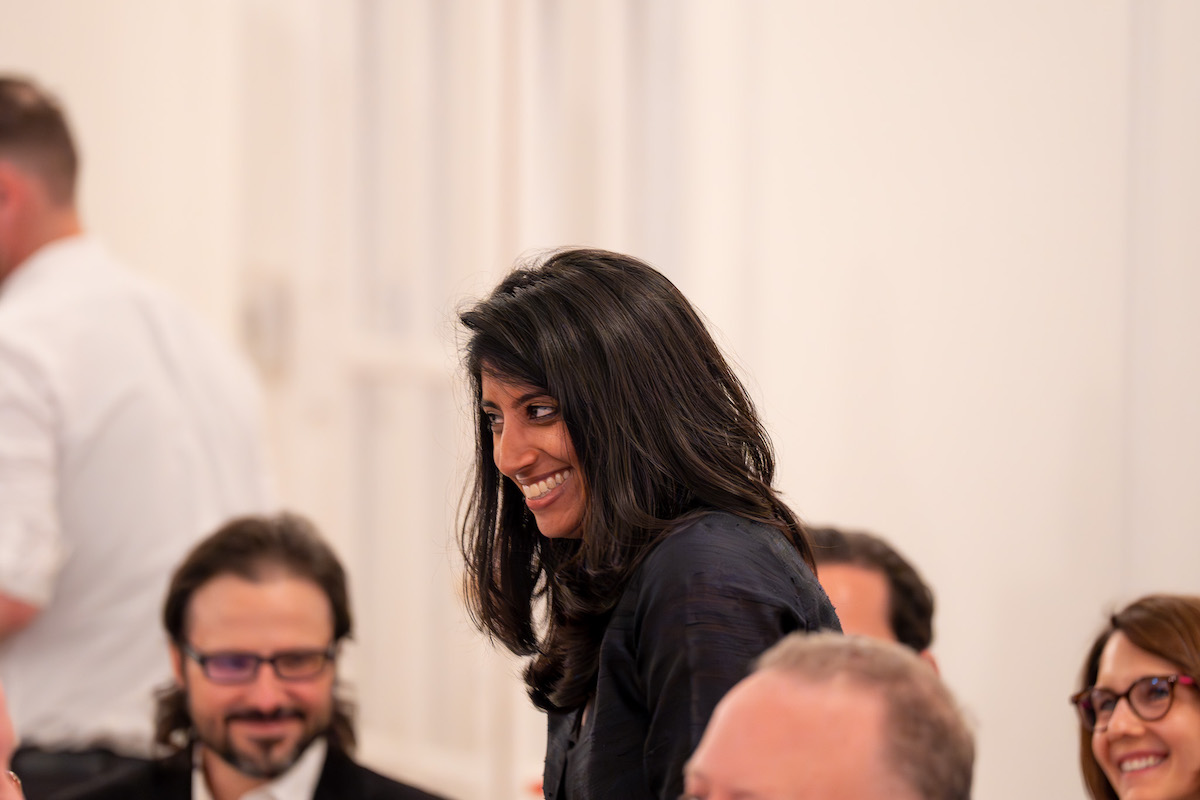When Creative Writing Fellow Sanjena Sathian took home the Townsend Prize for Fiction on April 13 for her novel “Gold Diggers,” her department chair, Tayari Jones, had two reasons to celebrate.
Expanding the joy in Sathian’s win was the fact that another member of the creative writing faculty, Tiphanie Yanique, was among the 10 finalists for her novel “Monster in the Middle.” Noting that the Atlanta Writers Club (AWC) “has a very active membership of top-notch writers,” Sathian expressed gratitude for the recognition.
The Townsend Prize is given every two years by the AWC to honor the best literary fiction by a Georgia author since the last award. It was established in 1981 in memory of Jim Townsend, founding editor of Atlanta magazine and mentor to a remarkable generation of Southern authors that included Pat Conroy, Terry Kay, William Diehl and Anne Rivers Siddons.
Emory Libraries helped sponsor the event, which was held at the AWC Wimbish House. Melissa Fay Greene, Kirk Distinguished Writer-in-Residence at Agnes Scott College and author of six celebrated works of nonfiction, gave the keynote. In it, she probed what neuroscience can teach writers about engaging with their audiences.
“A well-told ad, with high storytelling value, brings us to tears in a minute. It’s because our brains have quickly gone on the story-arc inner rollercoaster ingrained in us since the Stone Age,” she asserted.
For Creative Writing, a banner month and year
“Professors Sathian and Yanique represent the best of Emory,” says Jones. “The Townsend Prize is a special award because it celebrates talent here in the state of Georgia. Both ‘Gold Diggers’ and ‘Monster in the Middle’ are significant in that they are international yet local. It is a profound literary accomplishment to achieve universality through specificity.”
The high point in April is but one element in a successful year for the program, which also has seen Yanique be awarded a Fulbright fellowship, while Robyn Schiff won one of four 2022-23 Rome Prizes in Literature. It entails a stipend, workspace, and room and board at the American Academy in Rome.
A solid-gold first novel
“Gold Diggers” previously was honored as a Top 10 Best Book of 2021 by the Washington Post as well as a Best Book of 2021 by NPR, Electric Literature and Amazon. It also was longlisted for the First Novel Prize given by the Center for Fiction.
For Sathian, receipt of the Townsend Prize is a coming-out in a literal sense. “Gold Diggers” was released in 2021 but, because of the pandemic, Sathian had little opportunity to do in-person promotional events.
While teaching in New Zealand, with her belongings in India and COVID-19 raging, Sathian had a decision to make. So, she flew to Atlanta — her hometown — describing it as “bittersweet to come back but not be present in the city with the novel.”
When she first arrived here with her family in 1993, Sathian describes living in a white, conservative neighborhood that had, in her words, “little bubbles of Asian-ness.” The question of belonging is one that her book takes up, creating a mashup of suburbs such as Alpharetta and Johns Creek.
According to Sathian, “I didn’t do it intentionally, but I realized as the book was coming out that there are very few white characters. The Atlanta section is about Asians and the California section even more so. Without making a grand political statement, artistically I wanted to tell a story that came from inside the community. The book is about writing from the inside, where you do feel that — sometimes, at least — you belong.”
Coming to the small screen
Exploring some new projects, Sathian also is working with Mindy Kaling’s production company, Kaling International, on a television adaptation of the novel. Though some reviewers have seen “Gold Diggers” as a satire, she pitched it as a drama with comedic elements.
“There is a magical element in the novel that satirizes and gently mocks my Indian American world’s addiction to ambition. A hard satire doesn’t have many moments of psychological or emotional realism, which is why I avoided it,” Sathian says.
She is writing the pilot now. Asked about the adaptation process, Sathian is glad to be learning new things but grateful that “Gold Diggers” began as it did.
“In television, a lot more people are involved with your work. I think of writing as necessarily quite private. It is important that I got to write this particularly complex and personal story as a book first — in the dark, if you will — before considering the market or outsiders’ gazes,” she says.
There is always the option to take refuge in the classroom, which Sathian finds “incredibly generative” for her writing and thinking.
As Jones reflects on what Sathian and Yanique bring to the department, she concludes: “Students flock to their classes because they provide the best of both worlds — superb practitioners of creative writing who are also extraordinary teachers.”
Photos by Kai Smith of Eikönik Images


